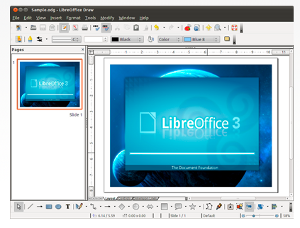A few weeks before my wife and I went on our latest cruise, I decided to get a smaller laptop for traveling. Because I had heard some good things about Asus, I chose their X54C model. After installing a larger hard drive and maxing out the memory, I loaded it up with the latest versions of most of the software I had installed on my main system, including the latest and greatest LibreOffice. (I was a bit disappointed with the difficulty I had getting the X54C to dual-boot Windoze and Debian 6, but that’s a topic for another post.) The only major program I forgot to load up on the X54C was Gimp, but I had an older version on a backup that I took with me, so I could still work on blog photos (turns out that I have a slight preference for the 2.6 version of Gimp over the 2.8 version, but that’s also a topic for another post). One of the things I had occasion to do was change a password on one of my WP sites, which I dutifully recorded in an encrypted spreadsheet which I use to keep track of all my site information (FTP logins, WP logins, name of hosting company, etc.). No particular problem with that. In fact, the latest and greatest LibreOffice Calc seemed to run a bit smoother, and looked slightly better.
Which brings us up to the events of yesterday.
When I got home, I (dutifully) copied the spreadsheet to my backup location. Yesterday, I set up two new websites (I’ll list them on my front page when I have enough content to make them interesting), and then went to update my spreadsheet with the information for the two new sites. LibreOffice complained that the file was corrupt. I tried opening the spreadsheet with MS Excel (as a perk for volunteering at NTPCUG, I got several MS products at a very low cost) — same problem. Ouch.
While I have all of the necessary information stored in different forms in various places, and I could recreate that spreadsheet (except for the last changed date column), I knew it would take most of a day to track all that information down and re-enter it, which is why I keep it in an encrypted spreadsheet in the first place. I had a sinking feeling when I contemplated that tedious and error-prone process. Fortunately, I have a backup in a different place, which meant that I would only have to track down stuff that had changed since last month, so I started the process of tracking down and recovering the backup.
Then it occurred to me that I was still using a older version of LibreOffice to access the spreadsheet on my home system. I went back to the X54C to look at it there, and lo & behold (!) it opened up the spreadsheet with no problem. Then I came back to my main system, and searched for the update menu item in LibreOffice. There wasn’t any that I could find. After nearly twenty minutes searching for some way to just update LibreOffice, I simply uninstalled it and installed the latest version. To my considerable relief, my encrypted spreadsheet was now accessible — but the recovery process had consumed over an hour from the time I first discovered the problem.
I am a bit disappointed in LibreOffice now. If they had implemented a way to detect that a more recent version of the program was required, and given me a meaningful error message, that would have cut my total recovery time to about 15 minutes. I will continue to use it, since for the most part it works really well, but I now know that I have to be careful regarding the following:
- LibreOffice updates may change the format of the “open document” in a way that is inaccessible to prior versions
- The error message that results may be misleading
- The latest update to LibreOffice did not come with an automatic notice that it was time to update, so that might also occur in future updates
- When updating LibreOffice, I need to remember to update it on all of my machines (what a PITA!)
- MS Excel does not understand the encryption mechanism used by LibreOffice, which limits my recovery options
One thing that I may start doing is using SVN to archive all important documents. That would have the advantage of allowing me to easily access older versions in the case that I inadvertently deleted some vital information. That would probably be a really good way to keep backups of my websites, too.
I expect that there will be others who run into this problem, and I also expect that the Document Foundation folks will fix this. For now, I’m just glad to be a programmer with enough determination to over-kludge my way around this sort of glitch. But I have a friend (an attorney who is also a borderline computerphobe) who would have been terminally bewildered by a run-in with this sort of problem, and would have had to spend money to get somebody like me to puzzle it out.
